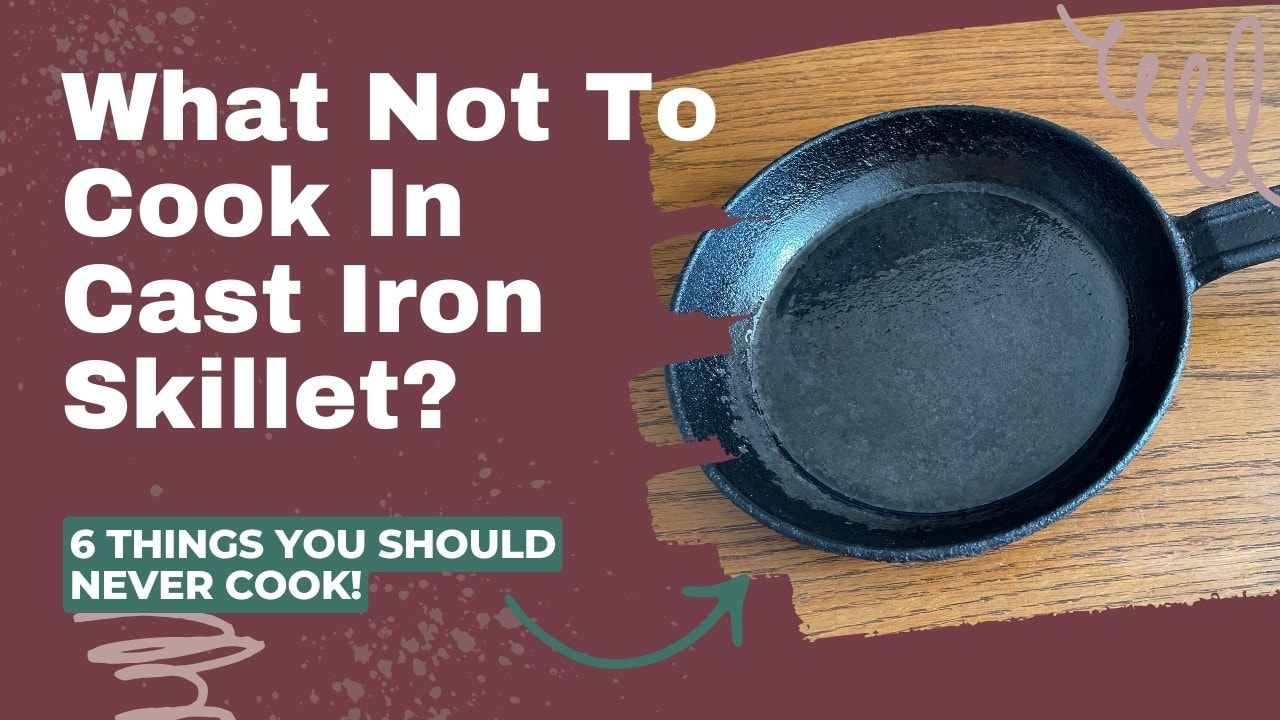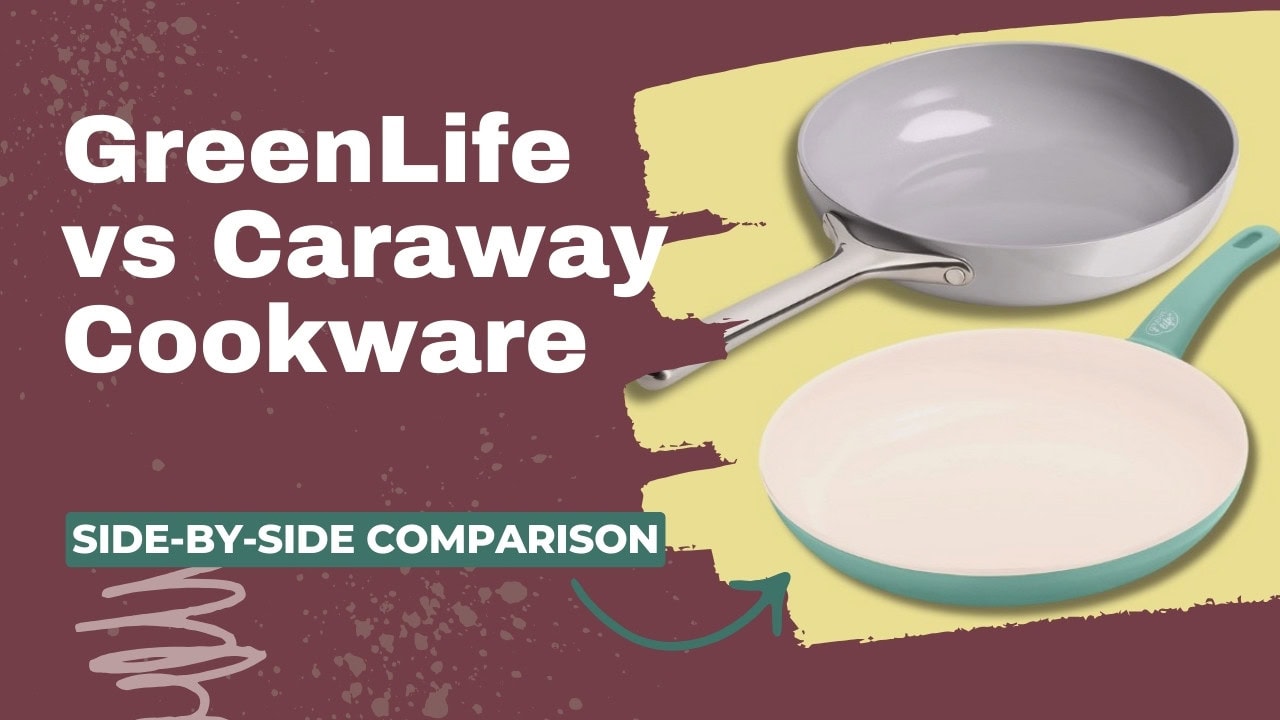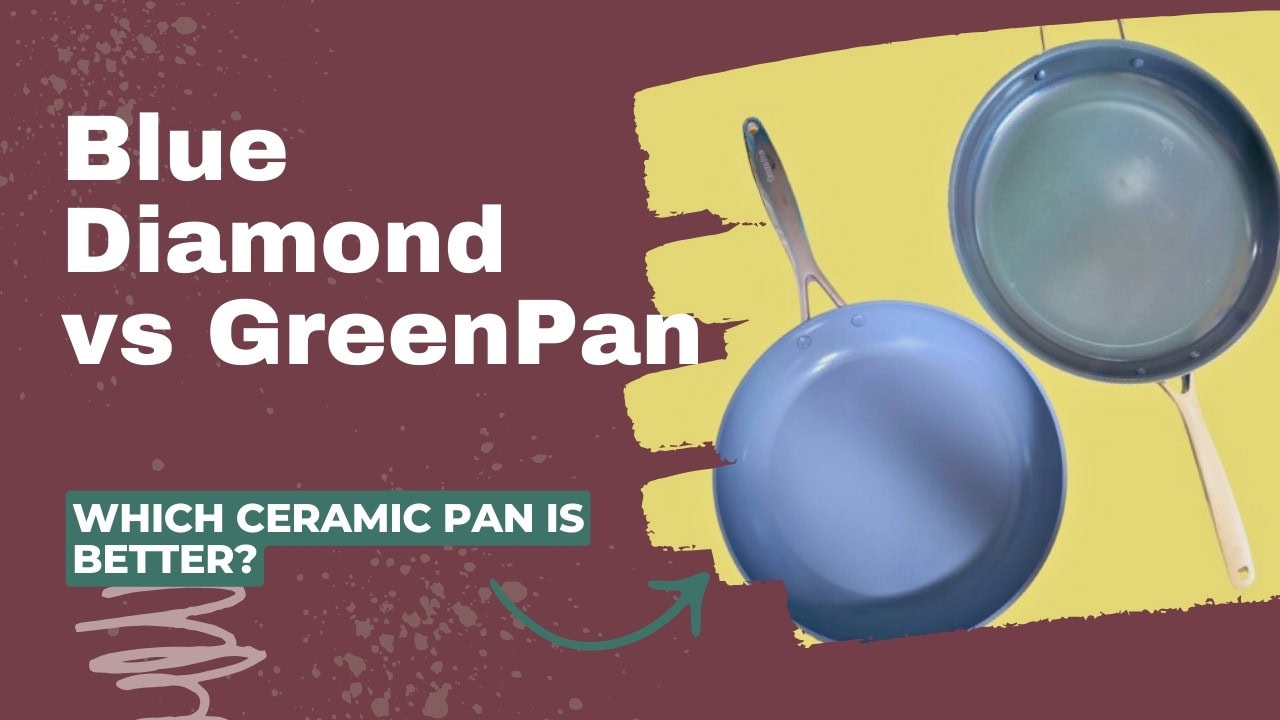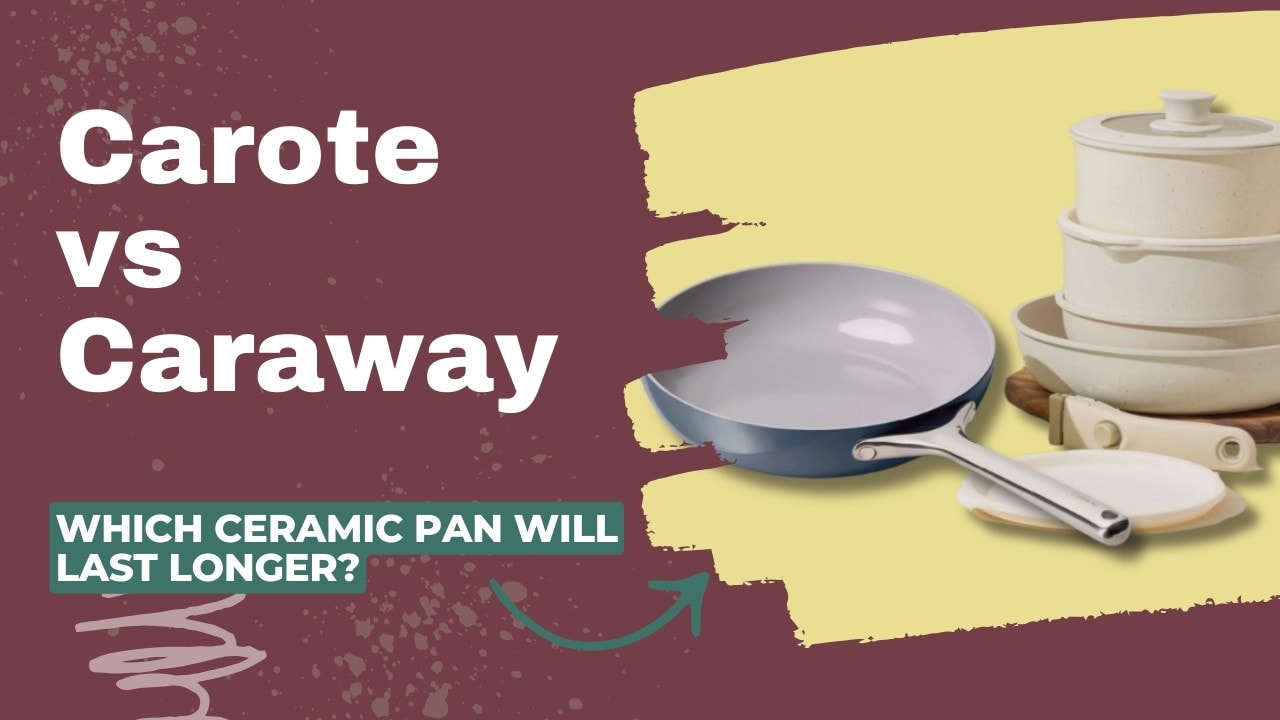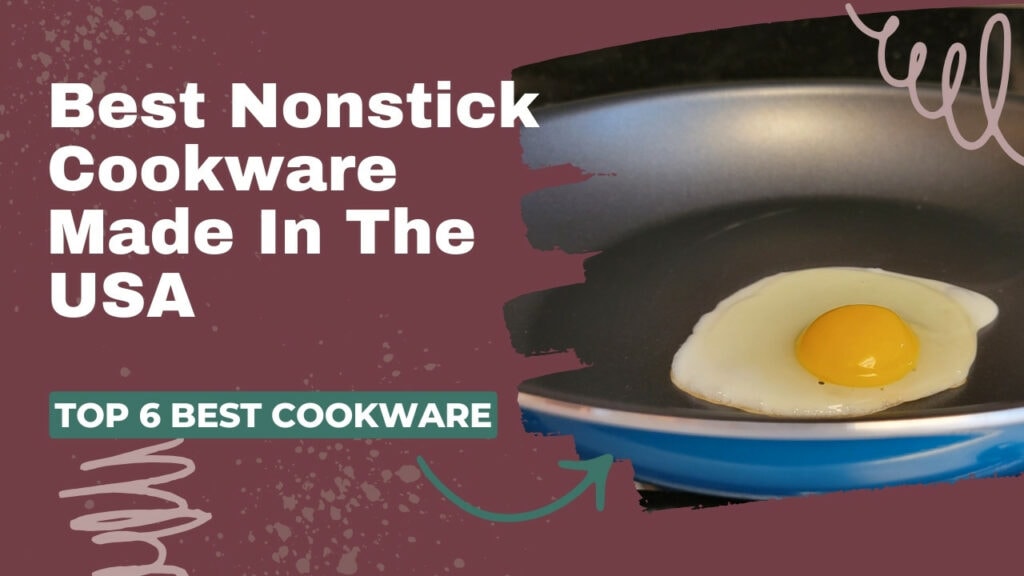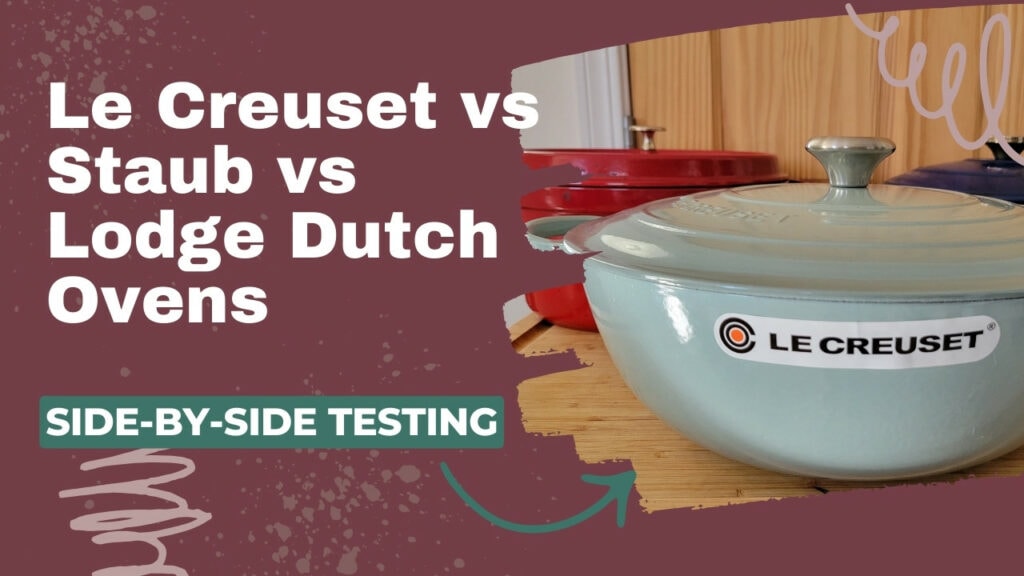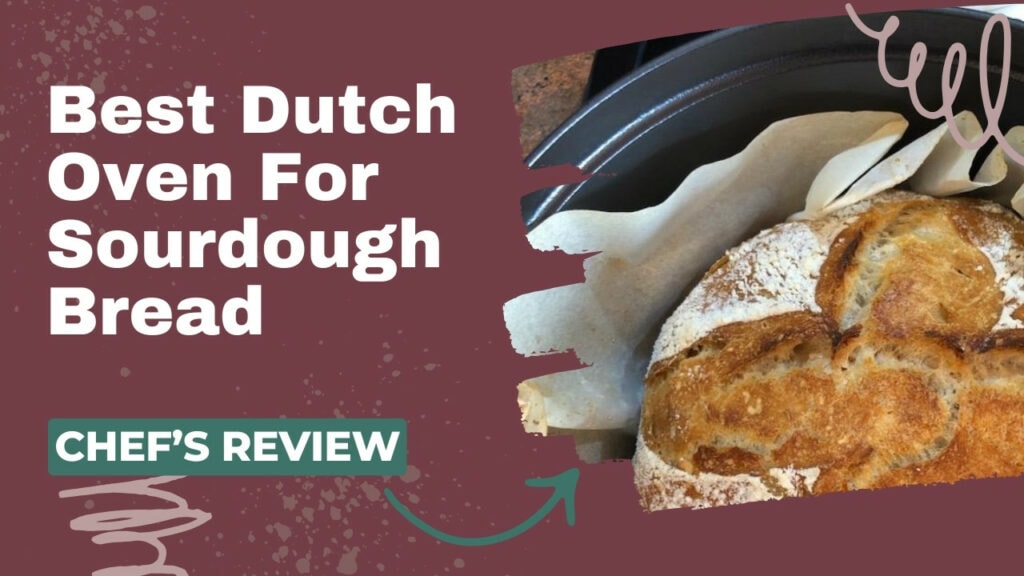I love my cast iron skillet for its superb versatility. It never disappoints, no matter what I’m cooking. But sometimes, I wonder if I’m abusing my cast iron by throwing everything at it. After many years of using my skillet, sometimes 2-3 times a day, I’ve discovered there are a handful of foods that don’t sit well with it– so I avoid cooking them in cast iron.
What Not to Cook in Cast Iron?
Whether or not you avoid these food groups altogether, you at least need to be extra careful when cooking the following foods in natural, uncoated cast iron pans.
The rules for cooking in enameled cast iron are different, of course, since food doesn’t make direct contact with the iron in enameled cookware (such as Le Creuset).
Foods You Should Not Cook in a Cast Iron Pan (At Least Not Without Caution)
1. Acidic Foods
Cast iron can react with acids in foods like tomatoes, wine, vinegar, and canned goods. Acids (especially when heated) will erode the seasoning on your pan and begin to break apart the iron itself on a molecular level. This sounds intense – but, thankfully – the reaction doesn’t instantly.
My homemade tomato sauce is mildly acidic (it had a pH of 4.6 when I tested it) and I didn’t have a problem simmering it in my cast iron for about 10 minutes. But cooking highly acidic foods (like vinegar or lemon juice) could easily strip the seasoning, allowing the acid to reach the metal and transfer a metallic taste to your food.
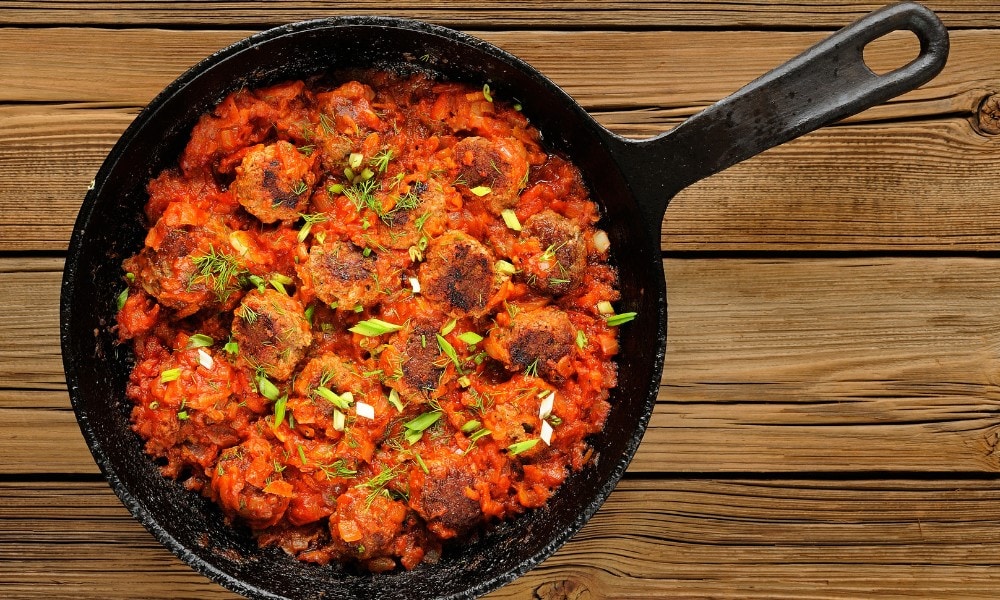
The thicker and smoother the seasoning on your cast iron, the more resistant to acids it will be. So, you can use it for a dish that includes a tomato or two, but switch to stainless steel or enameled cast iron when you need to simmer or braise foods for a long time.
Another tip to remember is to never use your cast iron skillet to store acidic foods. After cooking, transfer the food to another dish and wash the iron pan right away.
2. Delicate Foods
A seasoned cast iron skillet will be fairly nonstick if you handle it correctly, but it will never be as predictable as a Teflon-coated pan. Delicate foods like pancakes, fish, and omelets rarely leave an iron skillet perfectly clean with no bits left behind.
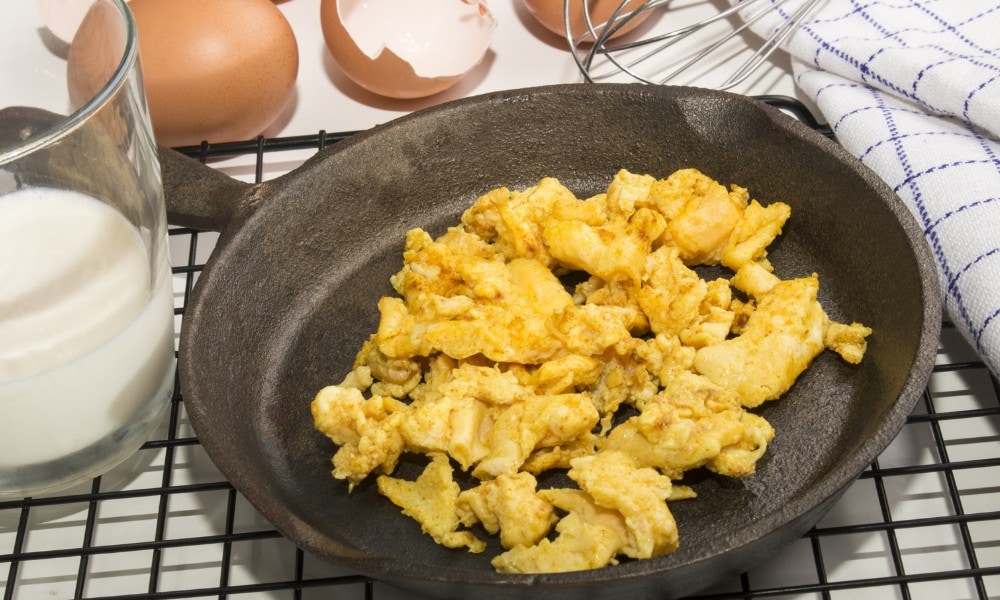
If you don’t want to risk the frustration of your fish filet or fried eggs sticking to the pan and breaking apart, you’re better off with a true nonstick skillet.
3. Food You Want To Flip
If two things shout “professional chef,” one is cast iron, and the other is flipping food in a pan with a showy twist of the wrist. But these two don’t mix well. Cast iron is heavy, and it’s not usually made into the right shape for flipping fabulous flapjacks high into the air.
So use a spatula to toss your food while sauteing or stir-frying in cast iron, and use a lighter pan like carbon steel for your fancy flips.
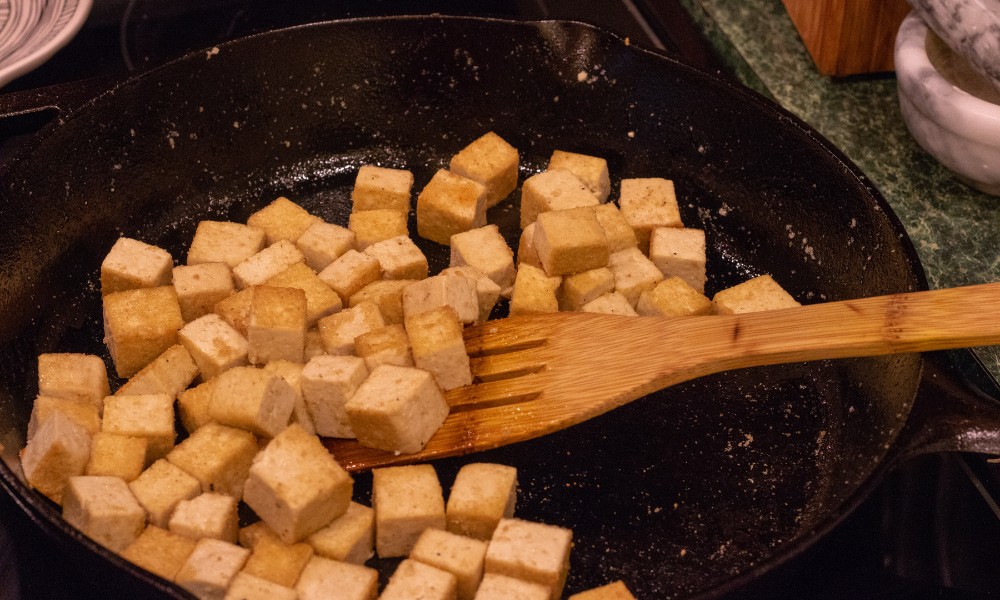
4. Sugar, Caramel, Candy
Making candy or caramel needs cookware with even heat distribution – which, surprisingly enough, doesn’t describe cast iron. Cast iron tends to warm unevenly while it’s coming up to temperature. And, once hot, cast iron holds on to its heat for a very long time. This is ideal for searing steak, but it can ruin your candy.
When working with sugar, you need super responsive cookware. There’s no margin of error in candy making; as soon as your confection reaches the perfect temperature, color, and texture, you need to remove the pan from the heat and drop the temperature as fast as possible. This is why copper is ideal for candy-making – and cast iron is not.
5. Strongly Flavored Foods
Do you want your breakfast pancakes to smell like garlic? I like a good savory crepe – but I wouldn’t go that far. Garlic, curry, chilies, peppers, and other smelly foods have strong aromas that can linger in the oils stuck on a cast iron pan and give the next thing you cook in it unwanted flavors.
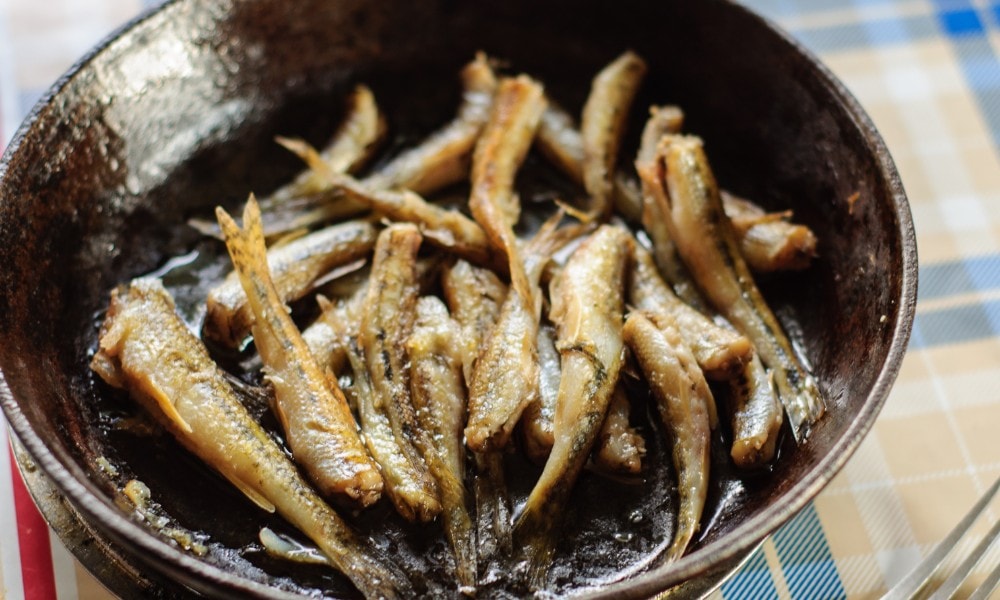
This may not be a negative if everything you cook in your pan has the same general flavor profile. But if you use it for a wide range of things, from stews to baking bread, you should watch the smelly ingredients.
This is another reason to keep fish away from your cast iron pan. Use stainless steel for those kinds of foods.
6. Oil with Low Smoke Point
Cast iron is the go-to cookware for high-heat cooking thanks to its thickness and strength. But you need to also use the right ingredients for safe cooking at high heat. The most important one is oil.
Using oils with low smoke points for high-heat cooking will burn the oil and give your food rancid flavors.
You will also get better results seasoning your pan if you use a high smoke point oil.
Other Common Mistakes With Using Cast Iron Pans
Cast iron may be one of the strongest materials for cookware, but it’s not bulletproof. Avoid these common mistakes to save yourself a lot of trouble and get better results:
Heating the Pan Too Quickly
Cast iron doesn’t heat evenly. You need to heat it in a way that minimizes hot and cold spots if you want to avoid thermal shock. The biggest mistake people make with cast iron is setting it on an electric or induction stove and turning the heat to “high” right away. This has made cast iron skillets literally crack in half!
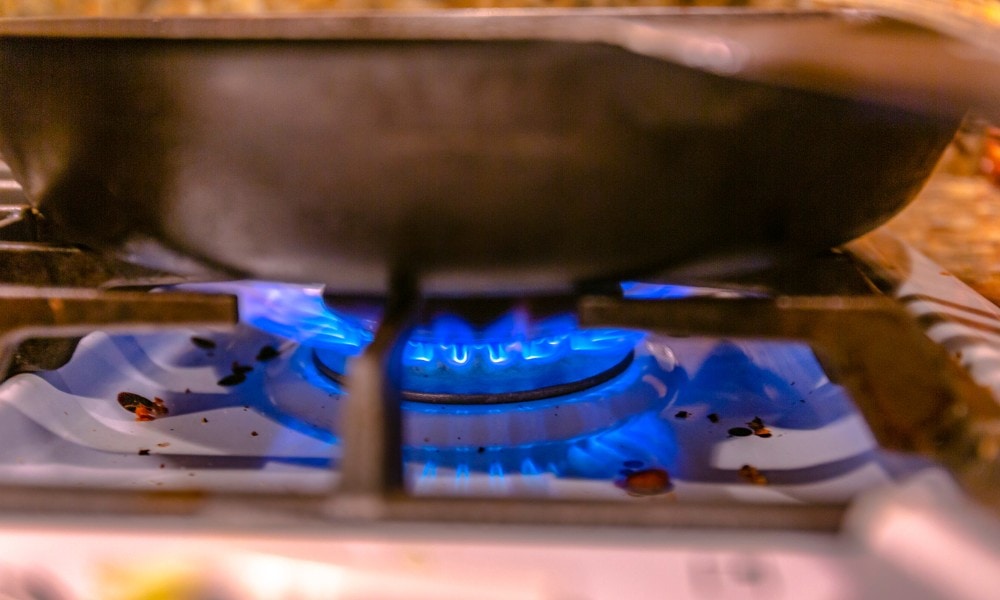
Instead, take your time and start the heating process on low to medium heat. This is even more important with induction stoves, which can get your cookware extremely hot.
Soaking It In Water
Once I’m done cooking, I prefer to take my time enjoying my creation and not rush to wash the dishes. So, I usually procrastinate and let the pan soak for a while. But that doesn’t work with cast iron. If you expose iron to water and oxygen, it’ll rust faster than you can say “skillet.” So, never keep the pan in water but wash and dry it right after cooking.
Washing It With Cold Water
Although washing your cast iron pan after cooking keeps rust at bay, you should wait until it cools down. Washing a hot pan with cold water can cause thermal shock and may lead to a pan cracking or warping. Wait for the pan to cool down, and wash it with warm water.
Not Drying it Completely
Not drying cast iron is another mistake that can leave your pan rusty. After washing your cast iron pan, dry it thoroughly and store it in a dry place.
Not Maintaining the Seasoning
Neglecting the seasoning on your cast iron will expose the pan to corrosion. This will make food stick to the pan and potentially turn into embedded carbonized crud. It’ll also make the layers of hardened oil rough and uneven when you do season the pan again. If your cast iron skillet looks dry or the protective coat on it appears thin, season it right away
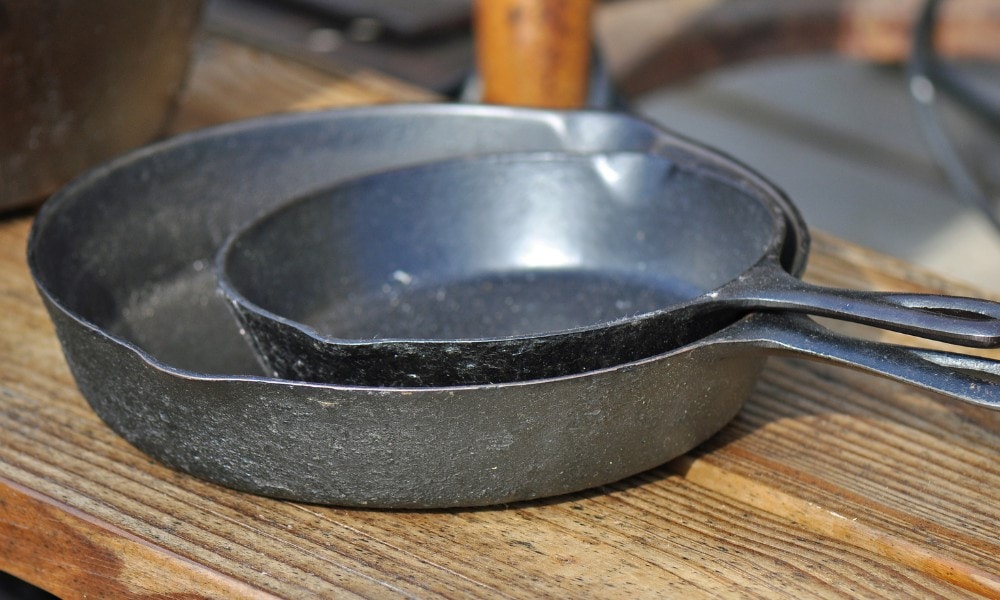
Not Really Cleaning It Well
There’s a raging debate on whether or not to use soap on your cast iron pans, but I’m on Team “Go For It!” Using dish soap to wash a cast iron pan shouldn’t significantly hurt the seasoning. Seasoning is made of polymerized oil baked onto the pan’s surface. It’s so strong that dish soap can’t dissolve it.
In my opinion, not washing cast iron does more harm than good. Without serious scrubbing and occasional soap, bits of carbonized food and gummy oil pile up on the pan’s surface, affecting its cooking ability.
FAQs
What are the disadvantages of cast iron?
Cast iron isn’t the best material for cooking eggs and fish since it’s not truly nonstick. Plus, it’s heavy and not suitable for flipping food. Another disadvantage is that cast iron doesn’t heat evenly, so you should heat it slowly over low heat.
Is there anything that will ruin cast iron?
Moisture is cast iron’s biggest enemy. Due to its high iron content, cast iron rusts if stored in a moist place. So, avoid soaking it in water and dry it up after washing.
Will metal utensils hurt cast iron?
Metal utensils don’t hurt cast iron. A well-seasoned pan has a thick layer of polymerized oil that’s not affected by metal utensils. In fact, I like to use metal utensils to scrape off burned bits of food and prevent them from building up on my cast iron pan.
Conclusion
Cast iron is prized for its versatility and ease of use. A well-seasoned cast iron can last for ages as it doesn’t need special care other than the occasional reseasoning. And you can cook just about anything in cast-iron skillets. But if you follow mindful cooking, you can prolong its lifespan even further and improve your cooking experience.
Did you find these tips helpful? Please share your comments below.

